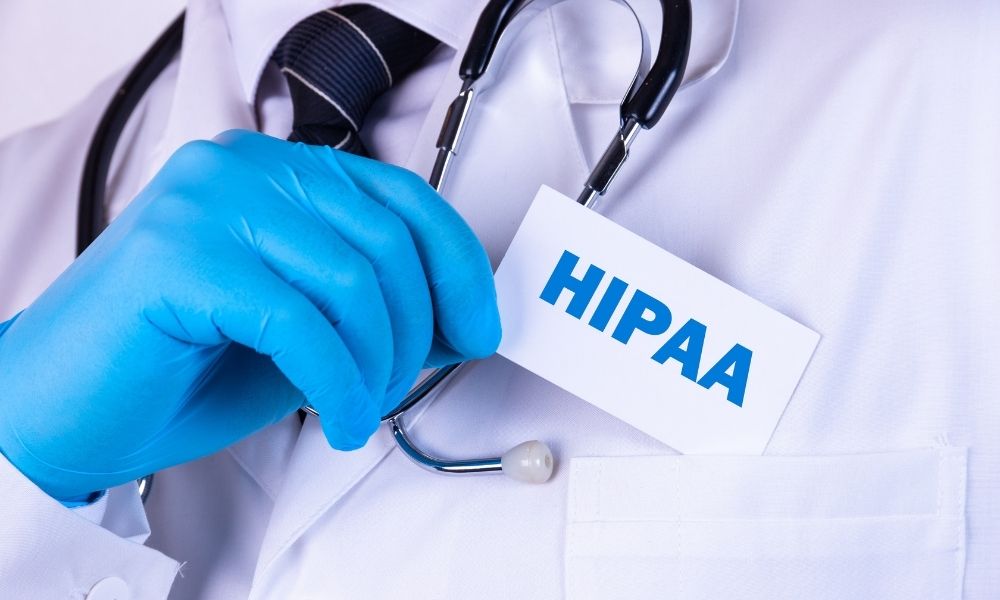The protection of sensitive data is a top concern for all organizations in the modern age. Health Insurance Portability and Accountability Act gives strict guidelines to the healthcare industry for the administration, storage, handling and security of protected medical data (PHI). HIPAA Compliance is important for healthcare institutions to ensure privacy and avoid penalties. It also helps maintain an excellent reputation.

HIPAA encompasses all healthcare providers, health plans, healthcare clearinghouses and business associates. PHI can include any information that could be used to identify a person, including names, addresses as well as credit card number. Additionally, it includes information about medical conditions and procedures. PHI can be sold on the blackmarket at an astronomical price due to its role for identity theft.
The HIPAA privacy rule sets out guidelines on the use and disclosure of PHI. To ensure the confidentiality, integrity and availability covered entities are required to implement policies and practices. The policies and procedures will cover security awareness training and other measures like access controls as well as security incident procedures. These entities are also obliged to limit the sharing and use of personal information to only the extent necessary to meet the intended goal.
HIPAA Security Rules require that covered entities use administrative, physical and technical safeguards to protect the access, confidentiality, and integrity of ePHI. These safeguards include audit controls integrity checks, transmission security plans, and contingency plans. They must also perform periodic risk assessments to detect potential weaknesses and implement measures to mitigate the risks.
HIPAA’s Breach Notification Rule requires covered organizations to inform affected persons, the Secretary of Health and Human Services, as well as, in certain instances, the media, in the case of a breach of PHI that is not secured. The rule defines a breach as purchase, access, use, or disclosure of PHI in a way not allowed under the Privacy Rule, which could compromise the security or privacy of the PHI. Covered entities must conduct a risk assessment to determine the possibility that the PHI is compromised and the potential harm that might result due to the breach.
HIPAA requires that all employees receive continuous education and training to ensure they understand their responsibilities and roles with regard to the privacy and security of patients. Employers covered by HIPAA must perform regular risk assessments in order to find potential vulnerabilities and implement measures to minimize the risks. These measures could include installing security controls as well as encryption of ePHI or developing plans of contingency to handle an eventual security incident.
In the modern age, technology has made an enormous impact on almost all aspects of life, including healthcare. Electronic health records have proven revolutionary by enabling healthcare providers to store and manage patient data in a seamless way. This has resulted in significant cybersecurity risks and strict compliance with HIPAA is a must. Information about patients is highly sensitive and should be secured at all times. HIPAA is never more vital than it is now, with the growing threat of cyberattacks against healthcare providers. HIPAA assists in protecting the privacy and security of patient data, thereby improving trust of patients with health care providers.
HIPAA can help healthcare providers in maintaining trust with patients and secure their privacy. HIPAA violations can lead to fines of up to $100,000 or more, and legal action as well as damage to your reputation. The Department of Health and Human Services’ Office for Civil Rights (OCR) is responsible in enforcing HIPAA regulations and has the power to investigate complaints and conduct compliance reviews.
HIPAA compliance is vital for healthcare organizations to protect privacy of patients in the digital age. HIPAA regulations offer guidelines to manage, store the handling of and safeguarding health information. Healthcare facilities should ensure that they adhere to HIPAA-compliant policies and procedures, perform regular risk assessments, provide continuous training and education to their employees, and conduct regular risk assessment. They can stay clear of financial and legal penalties by maintaining trust among patients.
For more information, click importance of hipaa